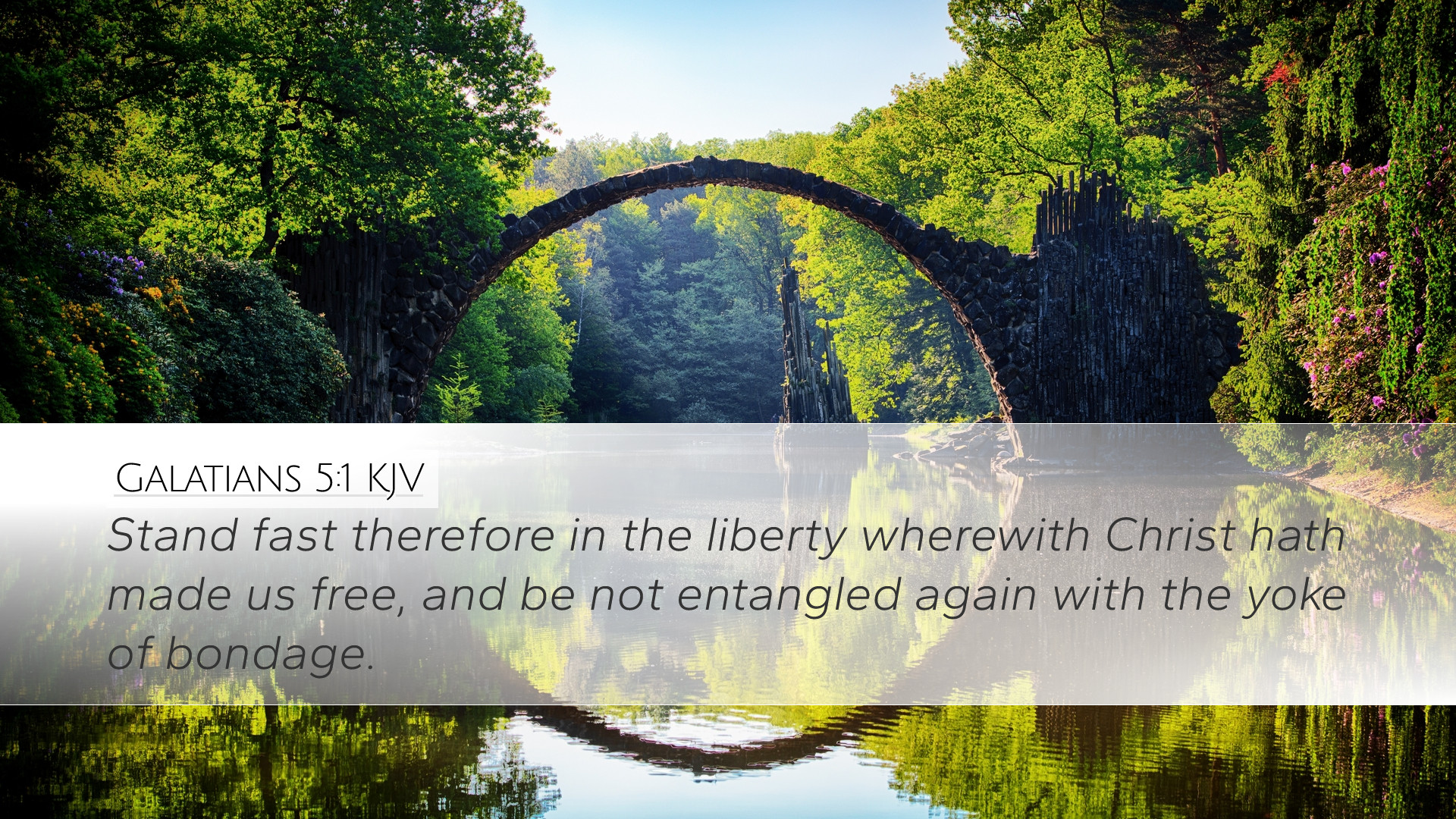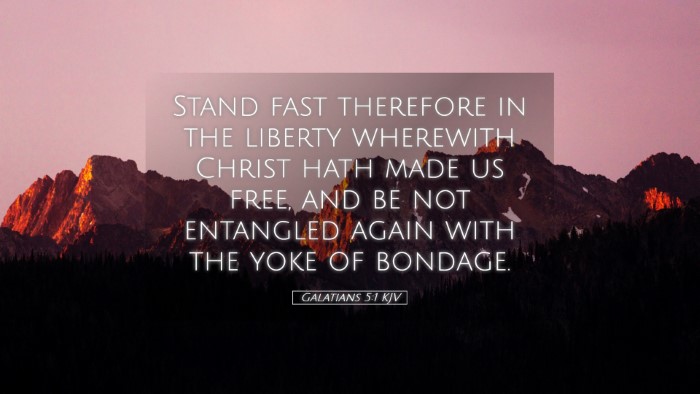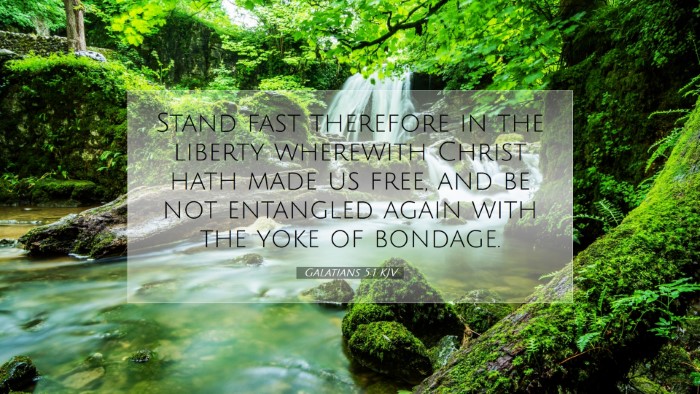Commentary on Galatians 5:1
Verse: "Stand fast therefore in the liberty wherewith Christ hath made us free, and be not entangled again with the yoke of bondage."
Introduction
The Apostle Paul's letter to the Galatians addresses critical issues surrounding Christian liberty and the challenge of returning to legalistic practices. This specific verse, Galatians 5:1, serves as a powerful reminder of the freedom that believers have in Christ and the imperative to maintain that freedom against any form of spiritual bondage. Drawing insights from esteemed public domain commentaries, this commentary delves into the profound implications of this text for pastors, students, theologians, and Bible scholars.
Thematic Overview
- Christian Liberty: The "liberty" signifies the freedom from the law and the curse of sin through the atoning work of Christ.
- Warning Against Legalism: Paul’s admonition against being “entangled again” underscores the danger of returning to a works-based righteousness.
- Exhortation to Stand Firm: The call to “stand fast” emphasizes the need for perseverance in the face of spiritual challenges.
Exegesis of Galatians 5:1
“Stand fast therefore” – The term "stand fast" is a military metaphor implying steadfastness and courage. Paul encourages believers to hold their ground in the face of opposition from both within and outside the church. Matthew Henry highlights that this command is rooted in the preceding context, where believers have been called to embrace their freedom in Christ.
“in the liberty wherewith Christ hath made us free” – This liberty is a central theme in Paul’s epistle. Albert Barnes notes that the freedom achieved by Christ is not merely a release from the law but an entrance into a relational standing with God. It is a dynamic lifestyle of grace that empowers the believer to live in accordance with the Spirit rather than human efforts.
“and be not entangled again with the yoke of bondage” – The phrase “yoke of bondage” metaphorically represents the law's oppressive nature. Adam Clarke elaborates on the “yoke,” suggesting that Paul is cautioning against the inclination to revert to the constricted and burdensome regulations of the Mosaic Law, which were never intended to redeem but rather to point towards Christ.
Theological Implications
- Freedom in Christ: The fundamental principle of Christian doctrine is encapsulated in the liberating work of Jesus. Understanding this freedom is essential for any believer as they navigate their spiritual journey.
- The Danger of Legalism: The warning against entanglement serves as a crucial deterrent against returning to a religious mindset that equates righteousness with rule-keeping, a theme prevalent in many modern expressions of faith.
- The Call to Persevere: Christians are reminded that the life of faith requires active intentionality in resisting temptations that lead back to bondage—be it through legalism, sin, or false teachings.
Practical Applications
For pastors and ministry leaders, this verse serves as a foundational text to teach the congregation about the essence of living in freedom. They may employ the following applications:
- Teaching on Grace: Emphasizing that salvation is by grace through faith, independent of works, encourages believers to live out their faith from a place of love rather than obligation.
- Encouraging Accountability: Foster discussions within the church about common tendencies to revert to legalism, creating a safe space for confession and growth among believers.
- Equipping for Spiritual Warfare: Equip congregants to recognize spiritual battles that threaten their liberty and help them respond effectively through prayer and Scripture.
Conclusion
In conclusion, Galatians 5:1 serves as a pivotal reminder of the liberating power of Christ's sacrifice and the responsibility of the believer to remain steadfast in that freedom. Drawing on the insights of Matthew Henry, Albert Barnes, and Adam Clarke, it is clear that the Galatian church's struggle against legalism resonates through the ages, challenging modern Christians to embrace their liberty fully. Through careful adherence to Scripture, strong teaching, and active engagement with the Holy Spirit, believers can stand firm in the freedom that Christ has procured.


